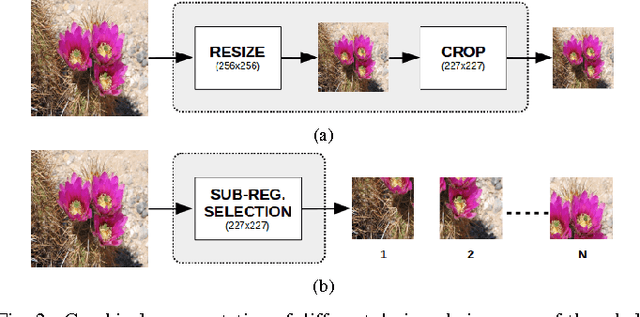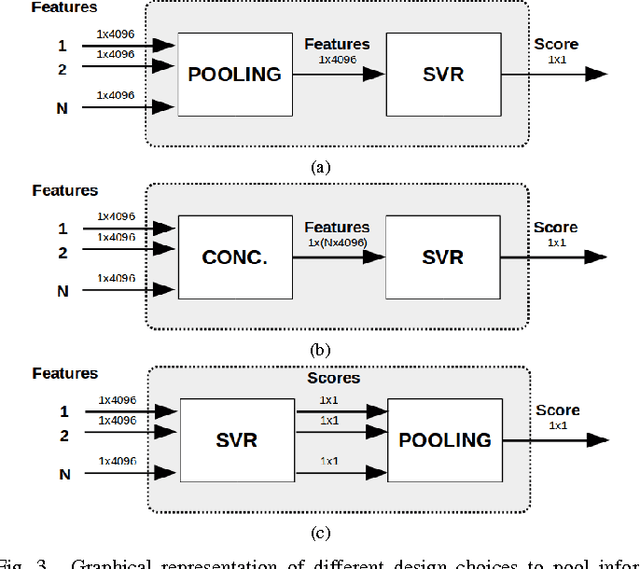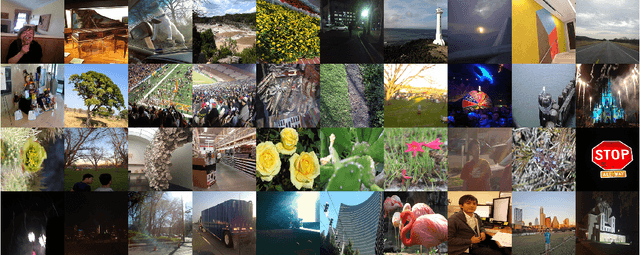On the Use of Deep Learning for Blind Image Quality Assessment
Paper and Code
Apr 04, 2017



In this work we investigate the use of deep learning for distortion-generic blind image quality assessment. We report on different design choices, ranging from the use of features extracted from pre-trained Convolutional Neural Networks (CNNs) as a generic image description, to the use of features extracted from a CNN fine-tuned for the image quality task. Our best proposal, named DeepBIQ, estimates the image quality by average pooling the scores predicted on multiple sub-regions of the original image. The score of each sub-region is computed using a Support Vector Regression (SVR) machine taking as input features extracted using a CNN fine-tuned for category-based image quality assessment. Experimental results on the LIVE In the Wild Image Quality Challenge Database and on the LIVE Image Quality Assessment Database show that DeepBIQ outperforms the state-of-the-art methods compared, having a Linear Correlation Coefficient (LCC) with human subjective scores of almost 0.91 and 0.98 respectively. Furthermore, in most of the cases, the quality score predictions of DeepBIQ are closer to the average observer than those of a generic human observer.
 Add to Chrome
Add to Chrome Add to Firefox
Add to Firefox Add to Edge
Add to Edge